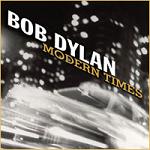Forget “Shame on Tom.” How about “shame on us.”
In reading several articles and blog pieces–including Idol Chatter’s reliable Kris Rasumussen’s–I think almost everyone has missed the real point. Tom’s exit from Paramount wasn’t due as much to his behavior or their greed as much as it was due to our behavior and our greed.
Our behavior was to watch a young actor come out of his choreographed shell and reveal more of his actual character and personality–and then decide not to go to his movies as much. It’s not as if he was some sort balanced character leader or upstanding citizen before he jumped up on Oprah’s couch or shared his pseudoreligious beliefs; we just didn’t know any better. As he got more authentic, we stayed away from his recent releases.
The result? The business entity charged with making a profit (Paramount Studios) made an assessment based on data that he wasn’t the market force he used to be. Correct? Yes. But it didn’t have to be.
What if throngs of citizens had shown up in greater droves, as if to say, “We truly value authenticity off screen while loving great entertainment on screen.” The problem, of course, is that many of us can’t separate the two, and we want too much to believe in (and vicariously connect with) the on-screen personas of celebrities, who lose value for us when they stray from what we want to conceive them as.
And this isn’t new. Humphrey Bogart tried to be the tragic hero in “The Caine Mutiny.” John Wayne got old in “Rooster Cogburn.” Robert Redford got vulnerable (finally) in “Indecent Proposal” and later “The Clearing.” Harrison Ford moved from the trilogies (“Star Wars” and “Indiana Jones”) to artsy stuff like “Mosquito Coast” and later tried to play a Russian in “K-19: The Widowmaker.” Cruise is the latest in a line of famous male actors who’ve tried to climb out of the box that made them famous–whether on-screen or off. It’s not that it’s bad, or wrong. It’s just that we (the public) don’t tend to respond well to it and thus the studios don’t want to pay them for it.
It’s just business, really. But deeper than that, it’s spiritual: We say we long for authenticity and honesty, but we don’t like it when we see it.
And that’s when every actor realizes he or she is really just another commodity.


